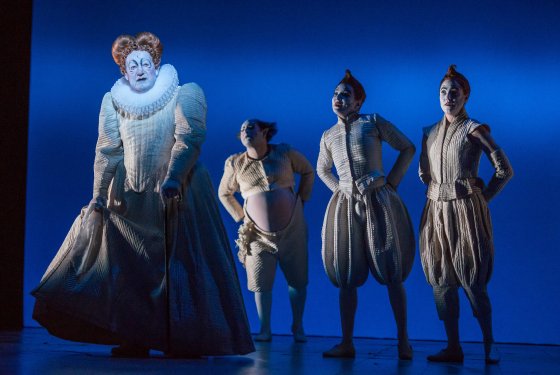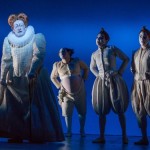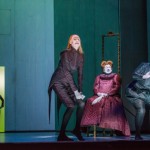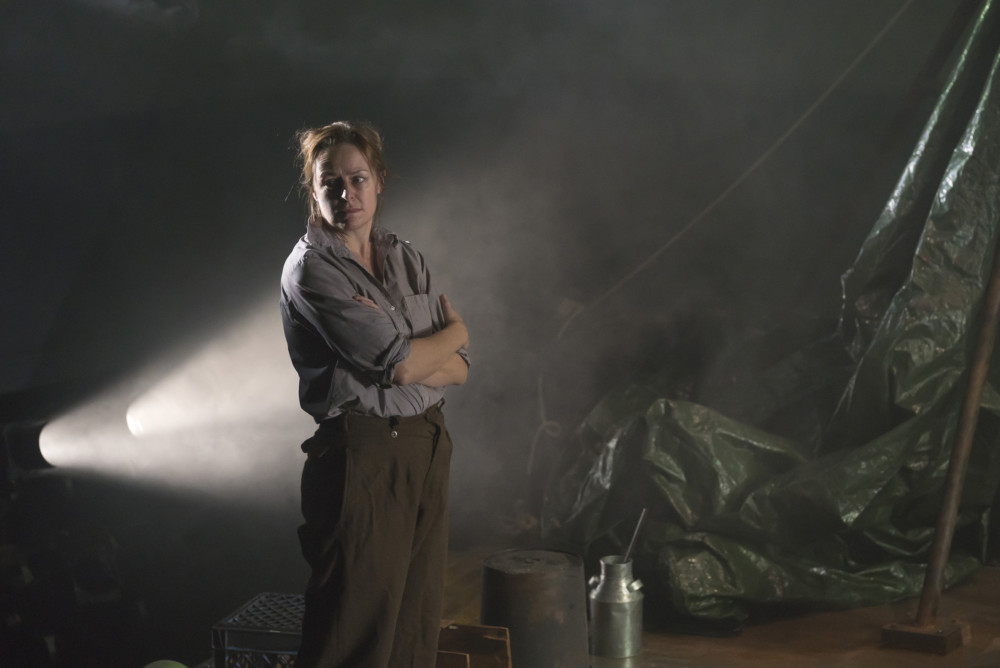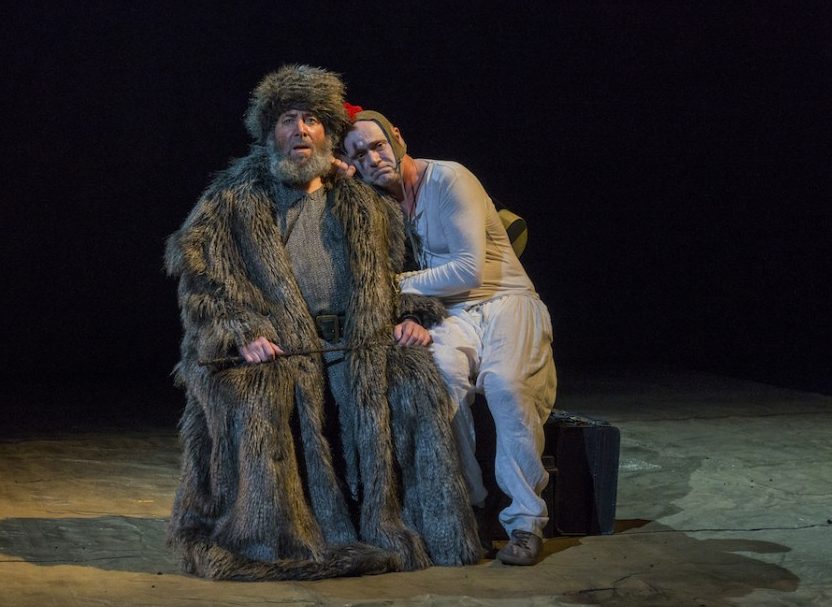NY Theater Review JK Clarke
Avant-garde theater/movement performances are not for everyone. It takes a special kind of artistic temperament to not get the impression that one is being goofed on or witnessing some sort of satire. But once we are able to absorb a good presentation as a whole and get a grasp of the meaning or message, the effect or impact can be overwhelming. Such is the case with Shakespeare’s Sonnets, as presented by Robert Wilson and Rufus Wainwright at the BAM Howard Gilman Opera House as part of the BAM 2014 Next Wave Festival.
One rarely has the opportunity to see the Sonnets performed on stage, for they were not meant to be. Merely a collection of Shakespeare’s poems, there are some prevailing themes (love, mortality, the passage of time and life), but there is no plot or story line. But, with the help of Jutta Ferbers, Wilson has chosen a number of Sonnets, mostly love-themed, and set them to Wainright’s original musical composition, creating fascinating performance pieces that are moving, provocative and often quite funny. Wilson is known for avant-garde, abstract productions (incuding Einstein on the Beach, which introduced much of the world, in 1976, to the minimalist musical compositions of Philip Glass) that focus on movement and exploration of language and linguistic nuance. It is here where the Sonnets become interesting, for not only has Wilson chosen to have his performers, The Berliner Ensemble, recite the poetry in German, but many stanzas are spoken (or sung) repeatedly and in different cadence to quite dramatic effect. But to appreciate the whole, we must examine the elements individually and reconvene afterward.
Unquestionably, this is a mind-twisting production. It is at once the stuff of garlic dreams or an LSD overdose on one hand, and a Mike Myers Saturday Night Live parody sketch on the other. The costumes, masks and makeup (Barbara Naujok, Ulrike Heinemann) are magnificent mélanges of grotesque Elizabethan mime-clowns: one central character is suggestive of Queen Elizabeth I (Jürgen Holtz), but looking more like a hideous old man in drag than a regal figure; another is a foppish, cartoonish figure representing Shakespeare himself (Angela Schmid). But the design and material of the costumes are deceptively stylish, modern and sleek.
After a few similar scenes in which sonnets are performed, the show is jarringly disrupted by Georgette Dee, a famous German cabaret performer in a long black velvet gown and bedraggled blond hair who comes out as comic relief character, apparently as our host (who moans about the wonder of “400 years” since Shakespeare wrote and complains about a telephone ringing loudly somewhere off stage and so on; she seems disorganized and possibly drunk). She wanders out in front of a closed red-velvet curtain, much in the style of a vaudeville show, with Winifried Goos as an “angel” in tow. Her character’s role, historically anyway, is meant to distract the audience while the set is being changed. Although this business is completely out of character with the rest of the show, somehow it works both lightening the load of the whole production, and simultaneously putting it all into perspective.
While one may begin the evening and the first several scenes feeling confused and perplexed, the show keeps moving toward something cohesive and somewhat logical, albeit still rather abstract. By the middle of the second act, which is considerably more compelling than the first, thanks especially to more and better songs by Wainright, it all starts to make sense . . . a little. At the very least, by show’s end the beauty of the actors’ movements and linguistic expression; the elegance of the costumes and remarkable clean, stylish, minimal sets; and the hook of the melodies have us enthralled with a show that has demonstrated artistic genius as an unexpected whole.
It’s hard to call Shakespeare’s Sonnets a “play,” although somewhere in there there might be one—it’s hard with reading all the translations of the German to figure it out for sure—but as a performance piece it’s a breathtaking display, something akin to a theatrical adaptation of Cirque de Soleil, but one in which the lines of the Sonnets are the actors’ trapeze.
Shakespeare’s Sonnets. Through October 11 as part of the BAM Next Wave Festival, Berliner Ensemble At the BAM Howard Gilman Opera House (30 Lafayette Avenue, Brooklyn). www.bam.org
*Photos: Stephanie Berger


